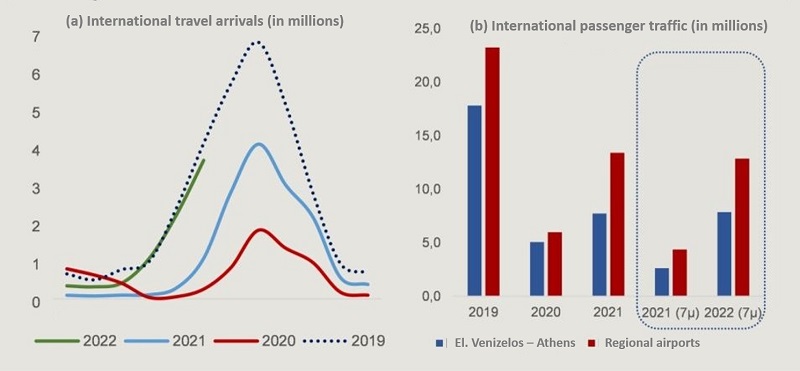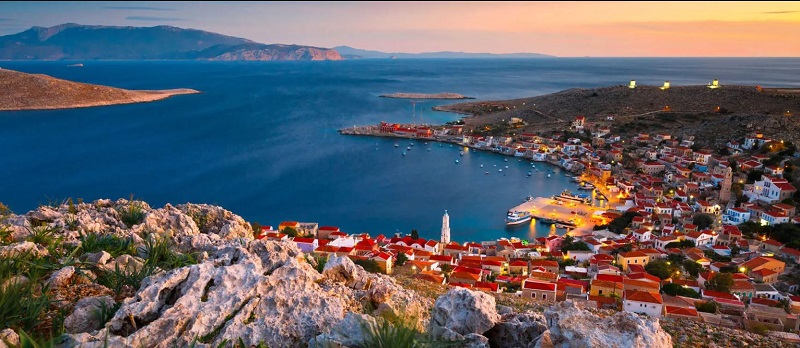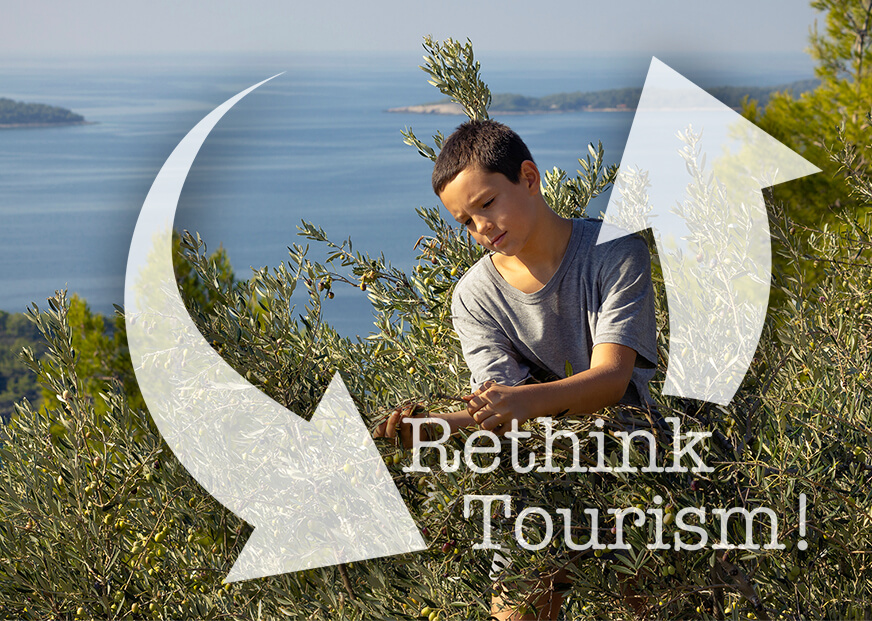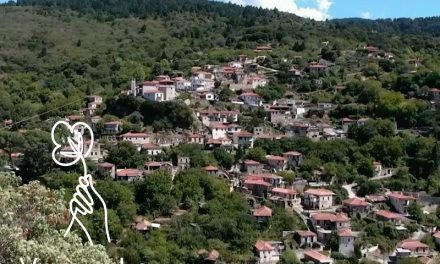2022 will probably turn out to be a new record year for Greek tourism, according to the data available so far, as travel receipts are expected to approach Euro 20 billion, significantly exceeding the corresponding size of 2019 (Euro 18.2 billion). Tourism is a major contributor to Greek economy and a sector of rising competitiveness at global level as it accounts for almost 25% of Greece’s GDP. The impressive increase in tourist flows though calls attention to over-tourism concerns regarding particularly some popular tourist destinations in Greece. The need to readjust the business model of tourism in the country has already been raised by analysts, the tourist industry, but also the competent Greek authorities.
A record-breaking summer
According to the data available so far, published by the Bank of Greece and a report by Alpha Bank:
• The balance of travel services posted a surplus of €3,518.2 million in July 2022 and a surplus of €7,710.1 million in the period January-July 2022.
• In 2019, the last year before the pandemic, the balance of travel services had posted a surplus of €3,472.3 million in July and a surplus of €7,549.4 million in January-July 2019.
• Travel receipts were 62.7% higher in July 2022 and 154.2% higher in January-July 2022 than in the corresponding periods of 2021. In more detail, receipts from residents of EU27 countries increased by 37.6% to €2,125.1 million, while receipts from outside the EU27 rose by 113.9%
• Inbound traveler flows rose by 87.3% in July 2022 and by 191.4% in January-July 2022 compared with the same periods of 2021.
• In terms of travel arrivals by country, the largest percentage came from the EU-27, specifically from Germany (18%) and France (7%), while tourists from the United Kingdom and the USA amounted to 15% and 4% of the total.
• Tourist receipts boosted, among other things, during the first half of 2022, the revenues of the General Government, which amounted to Euro 41.8 billion compared to Euro 35.3 billion in the same period of 2021, recording an increase of 18 .5%.

International travel arrivals and international passenger traffic at Greek airports in millions
Source: Bank of Greece, Athens International Airport, Fraport (via Alpha Bank report)
Towards a sustainable model of tourism
The increased tourist flows have raised serious concern among the tourist industry as professionals are realizing the importance of a sustainable model of tourism against the threat of climate change and over-tourism in certain time periods or destinations. At the same time there is a growing concern about Greece following the modern mega-trends in tourism ensuring quality of services.
The Greek Tourism Confederation’s (SETE) research body INSETE, has published in cooperation with Deloitte company, the study “Greek Tourism 2030 | Action Plans” taking into account global trends that affect future tourism development in order to help decisionmakers improve the Greek tourism product. The study proposes actions that could lead to the extension of the tourism season, improve the share of tourist activity and demand across the country, as well as increase the average length of stay, and other factors to help the tourism economy.

Lake Plastira (left, source Arivati, CC BY-SA 4.0, via Wikimedia Commons) and Dimitsana (right, source Visit Greece) great winter destinations in mainland Greece
According to the report:
“The course of Greek tourism towards 2030 presupposes the transition from spontaneous to targeted development through systematic, substantial and integrated planning in a framework of sustainability taking into account available resources, goals and emerging trends.”
The report puts forward five key areas where actions are needed to further develop the country’s tourist product through 2030:
• infrastructure improvement and development, mostly of public use facilities
• upgrade, diversification and promotion of the tourism product
• a digital upgrade and the transformation of the tourist ecosystem
• a strengthening of skills and training entrepreneurs
• and a move to ensure sustainable practices

Rafting in Nestos River. [Source Zahos Anastasiadis, CC BY-SA 4.0, via Wikimedia Commons]
The INSETE/Deloitte report also cites important global trends that should be taken into consideration when drawing up tourism policy. These include digital transformation, sustainable development, over-tourism, the sharing economy, social and demographic change, emerging destinations, security and crisis management, and ways to address the impact of the pandemic.
Greener projects by Greek authorities
The Greek Ministry of Tourism has set as a top priority the extension of tourism season in an effort to reduce pressure in specific areas and time periods, mainly through all year-round campaigns promoting winter tourism, city breaks, Easter destinations, lesser known summer destinations in Greece etc. Infrastructure upgrades in order to mitigate the consequences of massive traffic flows particularly in the islands are also planned, while a key priority of the Ministry is the transition of the Greek tourism industry to a more sustainable and environmentally friendly development model in order to deal with the effects of the climate crisis.
To this end the Ministry of Tourism and Google recently announced their cooperation concerning the creation of new training programs for small and medium-sized tourism enterprises, in collaboration with the Global Sustainable Tourism Council (GSTC). At the same time, Google has announced $1 million in funding from Google.org to support organizations that help social enterprises in Greece, with an emphasis on sustainability and ecotourism.

Astypalea, the electric island [Source Municipality of Astypalea website https://www.astypalaia.gr/]
The Ministry is also working on a new campaign that will focus on smart mobility, environmental protection, slashing gas emissions and reducing the use of plastics as its main themes. Sustainability and non-polluting practices that will reduce the country’s ecological footprint will preserve the authenticity and unique characteristics of every corner of Greece. “Implementing ‘greener’ policies, investing in the circular economy and in digital transformation as well as enhancing infrastructure projects are the next steps for the development of a new brand name for Greece” the Greek Tourism Minister Vassilis Kikilias said during the “My Green Mobility 2022” forum held in Athens last September.

The GR-eco island of Chalki [Source: Visit Greece]
The Minister put emphasis on three groundbreaking initiatives: the Astypalea E-mobility Project, the launch of the GR-eco Islands on Chalki, and the Tilos project adding that Greece is a frontrunner in the acceleration of the green transition thanks to innovative policies, a suitable institutional framework, and partnerships between the public and private sectors.
Intro photo: Source Visit Greece, on the occasion of the recent World Tourism Day on 27 September. ‘Rethinking Tourism’ was this year’s theme focusing on re-imagining the sector’s growth, both in terms of size and relevance.
Read also via Greek News Agenda
The comeback of Greek tourism
Between a “glorious past” and an “authentic present”: a brief overview of tourism in modern Greece
The “Smart Green Island” of Astypalea
Chalki, the first Gr-Eco Island
Tilos island: A future energy paradigm for the country?
I.E.
TAGS: ECONOMY & DEVELOPMENT | ENVIRONMENT | TOURISM












